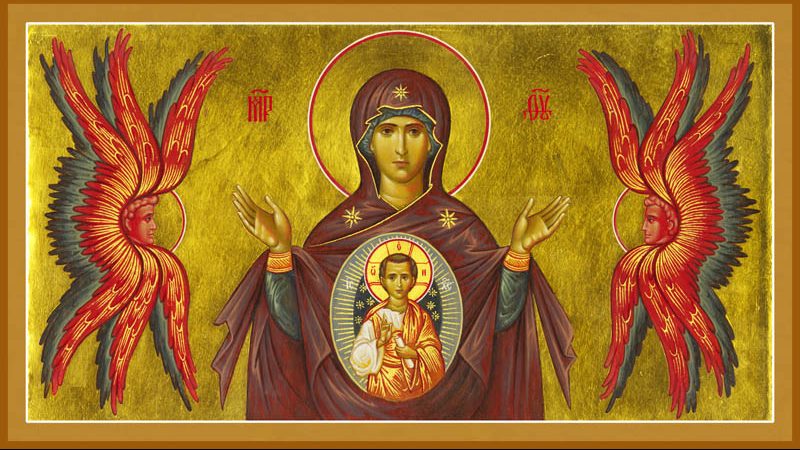About Time
4th Sunday of Advent (Year A)

The end of December always gets me thinking about time. It’s not just the counting down of the days till Christmas. And it’s more than the looming end of the calendar year. No, the final days of Advent prompt us to think about time on a more cosmic scale.
The bulk of the liturgical readings during the Advent season prompt us to look forward to that final coming of Christ at the end of time, the culmination of all things when the Body of Christ will come to full stature (Eph 4:13) and God will be “all in all” (1 Cor 15:28). This apocalyptic focus reminds us that history has an “end” in both senses of the word and that the unstoppable march of time is progressing toward something both frightening and glorious.
It is only now during the final week of Advent that we turn our sights back in time to the first coming of Christ, a coming that went mostly unnoticed initially but which changed the trajectory of history forever. “A virgin shall conceive, and bear a son, and name him Emmanuel” (Is 7:14).
Most of the prophecies we’ve been reading in Isaiah the past few weeks are yet to be fulfilled. We don’t yet live in a world where the wolf lies down with the lamb. Justice and peace do not reign supreme — not in our world and often not in our hearts. Not yet. We must continue to look ahead for the realization of these blessings.
But for the fulfillment of this great sign, the child born of the virgin who shall be Emmanuel (God-with-us), we look to the past. This is something that has indeed happened, as recorded in the gospels. “This is how the birth of Jesus Christ came about” (Mt 1:18). The fulfillment of this miraculous sign over 2000 years ago gives us hope that everything else will be fulfilled in its proper time. All will be set right. There is no rule saying all God’s prophesies must be fulfilled at once. He has all the time in the world, and he’s master of it all.
It’s common these days to hear from those who like to sound smarter than everyone else saying, Christmas is just a solstice festival. We don’t really know when Jesus was born. Like the Grinch or Ebeneezer Scrooge, they find pleasure in letting the air out of our holiday balloons. (Since both the Grinch and Scrooge had changes of heart by the end of their respective stories, there is hope for the real-life “bah humbug” crowd, too).
And they are correct, up to a point. We don’t know when Jesus was born. Not precisely, anyway. Celebrating one’s birthday every year is a fairly modern phenomenon and not every culture does it even today. It wasn’t something people did in ancient Israel so the exact date of Jesus’ birth was not recorded anywhere. Nevertheless the Church wants to celebrate such a momentous event in salvation history, so why not celebrate it at the winter solstice?
But isn’t that a pagan thing? Sure, the pagans recognized cyclical changes in the length of night and day. Why should Christians not observe the same thing? We live under the same sun, after all. The difference is that pagans worshiped the sun as a god whereas Christians recognize the sun to be something made by God and therefore subject, like all things, to God’s providence. In its annual dance across the sky, the sun gives God glory, so why not observe the days of solstice to give glory to God ourselves? After the winter solstice in December, the nights begins to grow shorter as the days grow longer. What better time to celebrate the coming of Christ, who is the “light of the world” (Jn 8:12, see also Jn 1:1-10)?
As it turns out, there are solid historical reasons to believe that Jesus was born toward the end of December (see this podcast link), which would only mean that God also thought it fitting for his Son to be born as the light of day begins to increase.
And it gets better. The gospels record that magi from the east followed a star to give homage to the newborn king of Israel (see Mt 2:1-12). Most biblical scholars today conclude that what the magi saw in the sky was not a new star that miraculously appeared, but an astrological event that signified to them, “A new king was born in Israel.”
This would, of course, mean that from the very moment the stars and planets were set in their motion, God was working things out so that when “the fullness of time had come for God to send forth his Son, born of a woman” (Gal 4:4), astrologers from a certain Persian culture would look in the sky and find a birth announcement. That’s pretty cool.
And here’s my takeaway for this Fourth Sunday of Advent: If God is sovereign over stars and planets, and if he took such great care to ensure that the birth of his Son would take place exactly when and where it was meant to be, that means he is also sovereign over the circumstances of your life and mine, and that you and I were born exactly when and where we were meant to be, too. God knows what he’s doing. We don’t need to fret.
To learn more about the historical dating of Jesus’ birth, check out these below resources:
If you are more of a reader than a listener, see this article by Jimmy Akin, “Was Jesus Born December 25th?”

